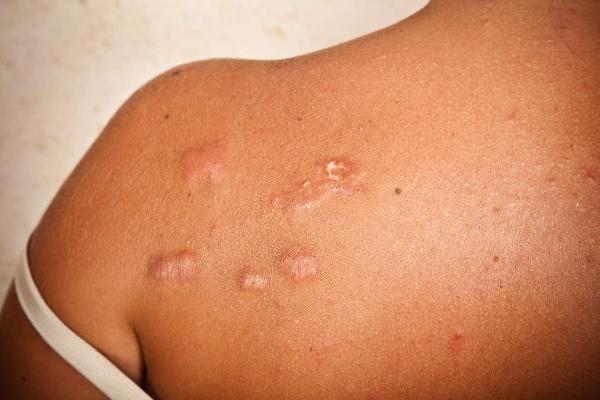 Guaranteed SEO Boost: Triple Your Rankings with Backlinks starting at 5$
Guaranteed SEO Boost: Triple Your Rankings with Backlinks starting at 5$
"Keloid Prevention and Early Treatment Strategies"
Written by healthcareblog » Updated on: October 29th, 2024
Keloids are a type of raised scar that can grow larger than the original wound itself, extending beyond its boundaries. They are often thick, rubbery, and may be darker in color compared to the surrounding skin. While they are not harmful to health, keloids can be cosmetically displeasing and sometimes itchy or tender. let's delve into Keloid Treatment in Dubai.

Understanding Keloids:
Keloids form when there is an overgrowth of scar tissue at the site of a healed skin injury. They can occur after surgery, acne scars, burns, piercings, or even minor scratches. The exact reason why some individuals are more prone to keloid scar formation than others is not fully understood, but genetics plays a significant role. People with darker skin tones are more likely to develop keloids compared to those with lighter skin.
Prevention Strategies:
Preventing keloids is challenging, but some measures can help reduce the risk, especially for individuals who are genetically predisposed or have a history of keloid formation:
Avoiding unnecessary skin trauma: Minimize elective surgical procedures or procedures that break the skin unless absolutely necessary.
Proper wound care: Ensuring wounds are cleaned and cared for properly can reduce the risk of keloid formation. Follow healthcare provider instructions for wound care meticulously.
Pressure therapy: Applying pressure dressings or silicone gel pads to a healing wound may help reduce the likelihood of keloid formation, particularly after surgery.
Avoiding body piercings and tattoos: Individuals prone to keloids may want to reconsider body modifications, as these can trigger keloid formation.
Early treatment of acne and other skin conditions: Prompt treatment of conditions like acne can help prevent potential scars that could later develop into keloids.
Early Treatment Strategies:
When keloids do develop, early intervention is crucial to managing their growth and improving their appearance. Treatment options include:
Steroid injections: Injecting corticosteroids directly into the keloid can help flatten and soften it. Multiple injections may be necessary over time.
Surgical removal: Surgical excision of the keloid followed by keloid injections or other treatments may be performed in some cases. However, there is a risk of the keloid recurring or becoming larger after surgery.
Cryotherapy: Freezing the keloid with liquid nitrogen can reduce its size and flatten it.
Laser therapy: Laser treatment can help reduce the redness and size of keloids, though multiple sessions may be required.
Radiation therapy: This may be used in severe cases to reduce the size of keloids, but it carries potential risks and is typically used as a last resort.
Lifestyle and Behavioral Considerations:
In addition to medical treatments, certain lifestyle choices can support keloid prevention and management:
Sun protection: Protecting the skin from sun exposure with sunscreen or clothing can help prevent keloids from becoming darker and more noticeable.
Avoiding excessive stretching or tension on the skin: This can be relevant for ear piercings or other areas prone to keloid formation.
Regular follow-ups: Individuals with a history of keloids should have regular check-ups with dermatologists or healthcare providers to monitor any changes or recurrence.
Conclusion:
While keloids can be challenging to prevent and treat, early intervention and a combination of strategies tailored to individual needs can significantly improve outcomes. Awareness of risk factors, careful wound care, and prompt treatment of any skin injuries or conditions can all contribute to reducing the likelihood of keloid formation or managing existing keloids effectively. By implementing these strategies, individuals can better manage their skin health and minimize the impact of keloids on their quality of life.
Disclaimer:
We do not claim ownership of any content, links or images featured on this post unless explicitly stated. If you believe any content or images infringes on your copyright, please contact us immediately for removal ([email protected]). Please note that content published under our account may be sponsored or contributed by guest authors. We assume no responsibility for the accuracy or originality of such content. We hold no responsibilty of content and images published as ours is a publishers platform. Mail us for any query and we will remove that content/image immediately.
Copyright © 2024 IndiBlogHub.com. Hosted on Digital Ocean

